March 16, 2009
Click here for the full written transcript of this podcast episode
This week's March 15, 2009 audio podcast episode is jam-packed with latest research for fitness and sports performance, including: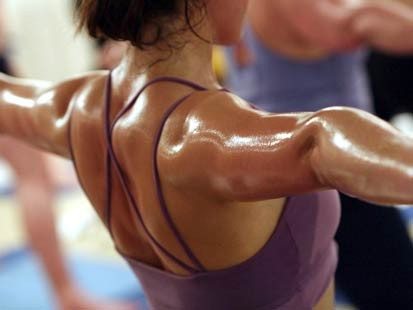
-Do Muscles Respond Differently to Resistance Training vs. Bicycling?
-Caloric Restriction & Sports Performance – Does Rapid Fat Loss Affect Cycling Endurance?
-Monitoring High-Intensity Training by Heart Rate vs. Power
-Alternatives to Lactate Threshold Testing
-Does Aquatic Resistance Training Actually Work?
-Massage & Recovery
Listen in as I talk about the latest research on these topics, then turn to the Listener Q&A, in which listener Jen asks:
Ben, further to your Fat Burning Secrets episode with John Gilbert re: taking in food/carbs during a 60 minute plus workout … how much food/carbs would you suggest? And would that amount change based on the overall length of workout?
Listener Paul asks:
I am a 45 yo male. I did one sprint Tri last summer and I am training for 2-3 events this year also. I am a former bodybuilder who always wanted to get involved in endurance/tri training but the bodybuilding kept me from pursuing it due to the inevitable muscle loss. A ruptured disc and subsequent surgery changed all of that and my bodybuilding days are 100% done. I can do some ‘Jane Fonda’ workouts but I only do those to maintain some strength for tri training.
Anyway, I try to eat right and I think I do pretty well for a weekend warrior. My big question is about diet soda. I do not drink alcohol, smoke or have any real vices expect that I drink a lot of pop (all diet of course). I probably drink 70-100 oz per day and I know that is too much. What is the truth regarding drinking pop? I have read that it is bad but I see a lot of conflicting information. Am I retarding my progress by ingesting this much pop? Is any amount acceptable? I know you are a straight shooter and you can back up your comments with science and that is why I am asking you. I appreciate your time and I will look forward to your answer.
Remember, you can now ask your questions to me via the free Skype software by simply “Skyping” me at username “pacificfit“.
As for why I smell like a spa? We also have a bonus interview in this week's podcast, featuring Martha from ActionWipes! This is the all-natural Sport Spray and Wipe with eucalyptus, tea-tree oil, and a host of other natural ingredients that will give you that instant “I Just Went to the Spa” feeling…even after a hard workout. Martha talks about how the product was invented, and I talk about exactly how I incorporate it into my sports training routine, and why it never leaves my gym bag! Be sure to activate your 15% discount code “BGF” today by ordering at http://www.actionwipes.com!
Be sure to leave our podcast a rating in iTunes! Just click here to go to our iTunes page and leave feedback.
————————————–
Also included in this podcast:
–Remember last week's interview with Josh Carter? I surfed over to Josh's website and checked out his book and a bunch of other very useful information. I want you to witness this yourself. Just click this link and you can see the video that blew me away.
-Join Ben Greenfield's Affiliate Program – Make money and get a monthly commission check by featuring Ben Greenfield's books & programs on your website. Just click here to find out exactly how.
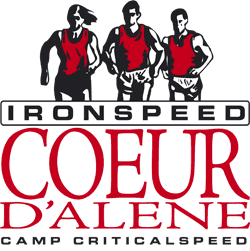
– Saturday, May 9 – Thursday, May 14, 2009: The Critical Speed Coeur D' Alene Triathlon Camp – Come train on the Ironman Coeur D'Alene course with coaches included Ben Greenfield for 4 days. The timing of this camp, just six weeks out from race day, cannot be better for those training for Ironman CdA. Race strategy, nutrition lectures, physiology testing, biomechanical analysis, and much, much more from American and Canadian coaches, physicians, and sports scientists.
-Tuesday, March 17 & March 24, 6pm in Coeur D' Alene Idaho: “Ben Greenfield's Fat Burning Secrets” – Learn the exact exercise and nutritional secrets that Ben Greenfield uses to gain rapid fat loss and fitness results combined with optimum health. 6-7pm at Pilgrim's Health Education Center in Coeur D' Alene, Idaho.
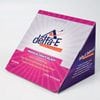 -“Delta-Tea”; Ben's Secret Energy Drink Tea Recipe – 1 packet delta-E mixed with 8oz hot water. Click here to get your hands on the delta-E that Ben talks about in the podcast episode – a powerful nutrient rich combo of Green Tea, Pomegranate, Suntheanine (the purest form of L-Theanine) and the most bio-active form of B12 (Methylcobalamin), which supports healthy brain and nerve function. Extremely low sugar and carbohydrates, with no artificial sweeteners.
-“Delta-Tea”; Ben's Secret Energy Drink Tea Recipe – 1 packet delta-E mixed with 8oz hot water. Click here to get your hands on the delta-E that Ben talks about in the podcast episode – a powerful nutrient rich combo of Green Tea, Pomegranate, Suntheanine (the purest form of L-Theanine) and the most bio-active form of B12 (Methylcobalamin), which supports healthy brain and nerve function. Extremely low sugar and carbohydrates, with no artificial sweeteners.
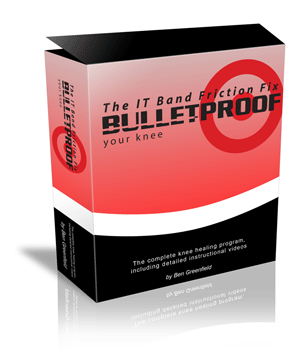 -Ben Greenfield's new program “The IT Band Friection Fix” for bulletproofing your knee! Click here to go to http://www.bulletproofknee.com for this just released, step-by-step system with full video and text modules for teaching you cutting-edge training, nutritional and rehabilitation techniques to eliminate pain in the side of your knee from iliotibial band friction syndrome and tendonitis.
-Ben Greenfield's new program “The IT Band Friection Fix” for bulletproofing your knee! Click here to go to http://www.bulletproofknee.com for this just released, step-by-step system with full video and text modules for teaching you cutting-edge training, nutritional and rehabilitation techniques to eliminate pain in the side of your knee from iliotibial band friction syndrome and tendonitis.
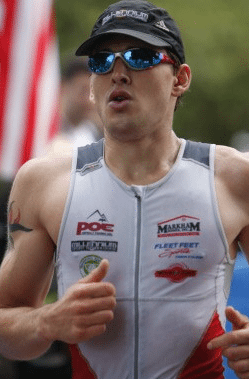 -Triathletes can have access to full training programs written by Ben Greenfield at a fraction of the cost of monthly coaching INCLUDING THE BRAND NEW, RECENTLY RELEASED COMPLETE IRONMAN NUTRITION PLAN! Just click here to go to a website where you can review your training plan options and get a free TrainingPeaks account (P.S. Use code “BGF” for a $20 savings on any Ironman training plan, including the nutrition plan).
-Triathletes can have access to full training programs written by Ben Greenfield at a fraction of the cost of monthly coaching INCLUDING THE BRAND NEW, RECENTLY RELEASED COMPLETE IRONMAN NUTRITION PLAN! Just click here to go to a website where you can review your training plan options and get a free TrainingPeaks account (P.S. Use code “BGF” for a $20 savings on any Ironman training plan, including the nutrition plan).
-Did you miss the January 4 LIVE TV SPECIAL on fat loss by Ben Greenfield? Watch the 60+ minute lecture “The Synergy of Fat Loss” by clicking here and getting access to a secret video page for just $4.99!


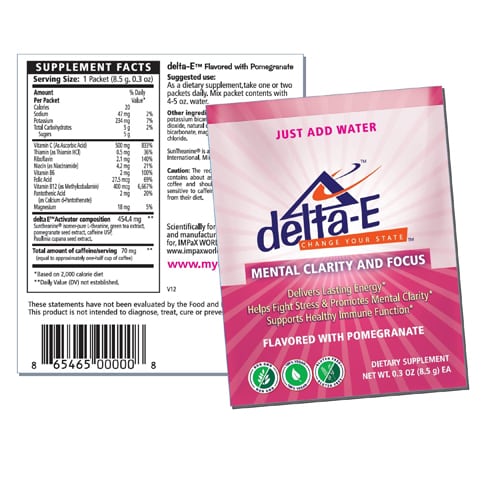
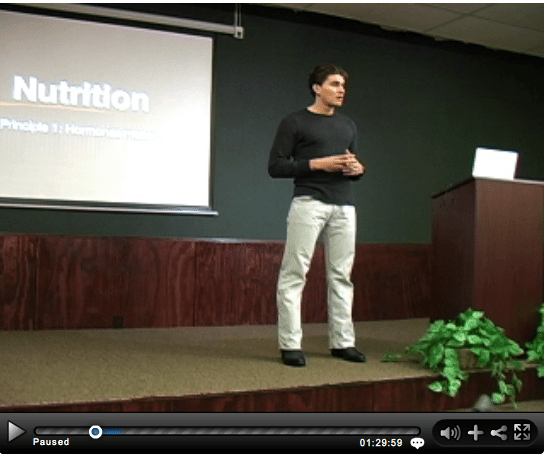
Ben:
I was listening to archived episode # 36. You briefly discussed a H.I.T. study of cyclists with a group training at 80% based on heart rate and another group based at 80% of peak power. You stated the study concluded similar performance gains with heart rate obtaining slightly greater gains. Intervals in study were 8 x 4min.
For discussion purposes, I take exception to the conclusion. It could be that not enough information was included in your podacast about the study for I to make such an exception.
In today’s power language, peak power normally represents one’s functional threshold power (FTP) level – meaning the average power one can maintain in an all-out effort for one hour. I do not believe a comparison of 80% of one’s heart rate and 80% of one’s FTP is a reasonable comparison. I train with power and performing intervals at 80% of my FTP does not elicit a heart rate close to 80%, rather much lower. In fact, riding at one’s 80% of FTP can be accomplished for quite a long duration with relative ease. 80% FTP is not that challenging. To give a little perspective, most triathletes bike a half-iron distance triathlon in a power range between 85% – 90% FTP. When I do intervals such as those performed in the study, I perform the intervals at 100% of FTP.
You utilize Training Peaks and are likely familiar with the use of Training Stress Score (TSS) which combines duration and intensity into a training load indicator statistic. Intensity has a much greater influence than duration in the calculation of TSS. The greater one’s TSS for a workout, the greater the training load applied to one’s body for adaptation. There is a significant difference in one’s TSS at 80% FTP versus 100% FTP.
I would argue that power training is more beneficial than heart rate training. Heart rate can be viewed as the symptom of work performed. However, heart rate can be affected by a number of variables (heat, dehydration, stress, amount of sleep the night before, etc). These variables can and do skew one’s heart rate, whereas power is power — a watt is a watt. For example, if one is attempting to train at 80% heart rate, but due to the variables discussed their heart rate is influenced to be at a greater rate than normal, then the athlete while adjusting their training intensity to maintain that 80% mark would actually be incurring a lower training load and adaptation than the workout was trying to achieve since in reality they are performing at a heart rate actually lower their real 80% level. Contrast that to power; if workout is to hit a %FTP and that was achieved, then workout achieved desired results without the variables that skew one’s heart rate. The existence of variables skewing one’s heart rate compared to the lack of variables skewing a watt imply that power training is more beneficial than heart rate training, all other factors equal.